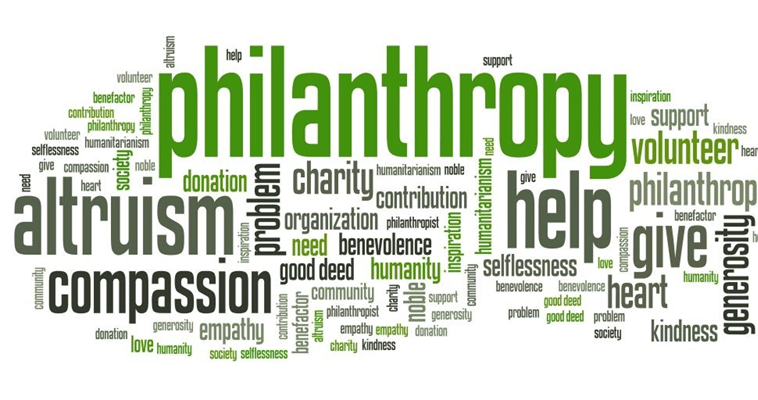The Wealth of India’s Charitable Organizations: A Closer Look
Explore the financial powerhouses of India’s charitable organizations, where philanthropy meets wealth accumulation. Uncover how tax exemptions, celebrity backing, and high-profile events drive their fortunes, raising ethical questions about transparency and impact. Dive into the socioethical dilemmas of these entities and rethink the role of charity in driving meaningful change.
BUSINESS
Dr Mahesha BR Pandit
8/4/20243 min read


The Wealth of India’s Charitable Organizations: A Closer Look
India is home to some of the richest charitable organizations in the world, wielding financial power that rivals some corporations. Their wealth often stems from substantial donations, endowments, and public contributions. While their missions focus on philanthropy, their financial structures and tax exemptions raise questions about transparency, accountability, and ethical responsibility.
The Financial Powerhouse of Charities
Charitable organizations in India often enjoy significant tax benefits under the law. By registering as non-profit entities, they are exempt from paying income tax on their revenue. This legal framework encourages philanthropy but also creates a system where substantial wealth can be amassed over time without the financial obligations faced by for-profit organizations.
In sectors like sports and entertainment, some charities are backed by high-profile individuals or events. For example, an organization tied to a popular sports league might collect hefty donations or sponsorships under the guise of supporting grassroots initiatives. Similarly, a charity founded by a leading entertainer can attract large contributions from fans and corporations, benefiting from their massive reach and public goodwill. These organizations often use their tax-exempt status to channel funds in ways that may not always align with their stated missions, leading to questions about their financial practices.
The Path to Wealth Without Taxes
What sets these organizations apart is their ability to operate like businesses while enjoying the financial benefits of being a charity. Revenue streams often include sponsorship deals, ticket sales for charity events, merchandise, and even investments in real estate or other assets. Since these earnings are tied to their charitable status, they remain untaxed as long as they can demonstrate alignment with their philanthropic goals.
For instance, a foundation associated with a former sports star might organize high-profile tournaments, earning millions through sponsorships. While a portion of the proceeds might indeed fund sports development programs, a significant amount often remains with the foundation, contributing to its growing wealth. Similarly, organizations tied to celebrities can leverage their fame to sell merchandise or host extravagant fundraising galas, amassing large sums under the tax-free umbrella of charity.
The Socioethical Dilemma
While these organizations are within their legal rights to operate this way, the ethical implications are worth examining. The very purpose of a charitable organization is to serve the public good, yet the opacity of their financial dealings often raises suspicions. Many of these organizations fail to disclose how much of their revenue is actually spent on charitable activities versus administrative costs or asset accumulation.
There is also the question of equitable philanthropy. Wealth concentrated in such organizations could potentially be better distributed among smaller charities that work directly with underprivileged communities. Instead, much of this wealth remains tied up in high-profile ventures that prioritize visibility over impact.
The reliance on tax exemptions further complicates the picture. While these policies are designed to incentivize giving, they also reduce the government's tax base, potentially diverting funds from essential public services. When wealthy organizations do not contribute their fair share of taxes, the burden often falls on the average taxpayer, creating an imbalance in social equity.
Real Impact or Public Relations?
In the sports and entertainment world, philanthropy often doubles as public relations. Charity events organized by a famous cricketer or actor may generate headlines, but the long-term impact of such initiatives is not always clear. Critics argue that some charitable organizations prioritize maintaining their image and wealth over driving meaningful change. Glossy campaigns and star-studded events overshadow the actual work being done on the ground.
For example, a foundation may launch a scholarship program for aspiring athletes but only fund a handful of beneficiaries annually while maintaining a large reserve of unused funds. This creates an image of giving without the substance to back it up. In some cases, the gap between perception and reality undermines public trust in the charitable sector as a whole.
Rethinking the Role of Wealthy Charities
India's charitable landscape is complex and diverse, and many organizations genuinely dedicate themselves to transformative work. However, the financial practices of some raise important questions about accountability, transparency, and the true purpose of philanthropy.
A more equitable approach might involve stricter financial reporting requirements, ensuring that a significant percentage of funds raised is directed toward meaningful impact. Charities could also collaborate with grassroots organizations to distribute resources more effectively, rather than concentrating wealth within a single entity.
Ultimately, the conversation about India’s wealthy charitable organizations is not just about finances—it is about the ethical responsibility of those entrusted with public trust and goodwill. By examining these issues, we can better understand how to create a philanthropic ecosystem that balances financial success with genuine social impact.
Image Courtesy: LinkedIn, https://www.linkedin.com/pulse/you-dont-need-wealthy-philanthropist-sonia-bielaszewska/